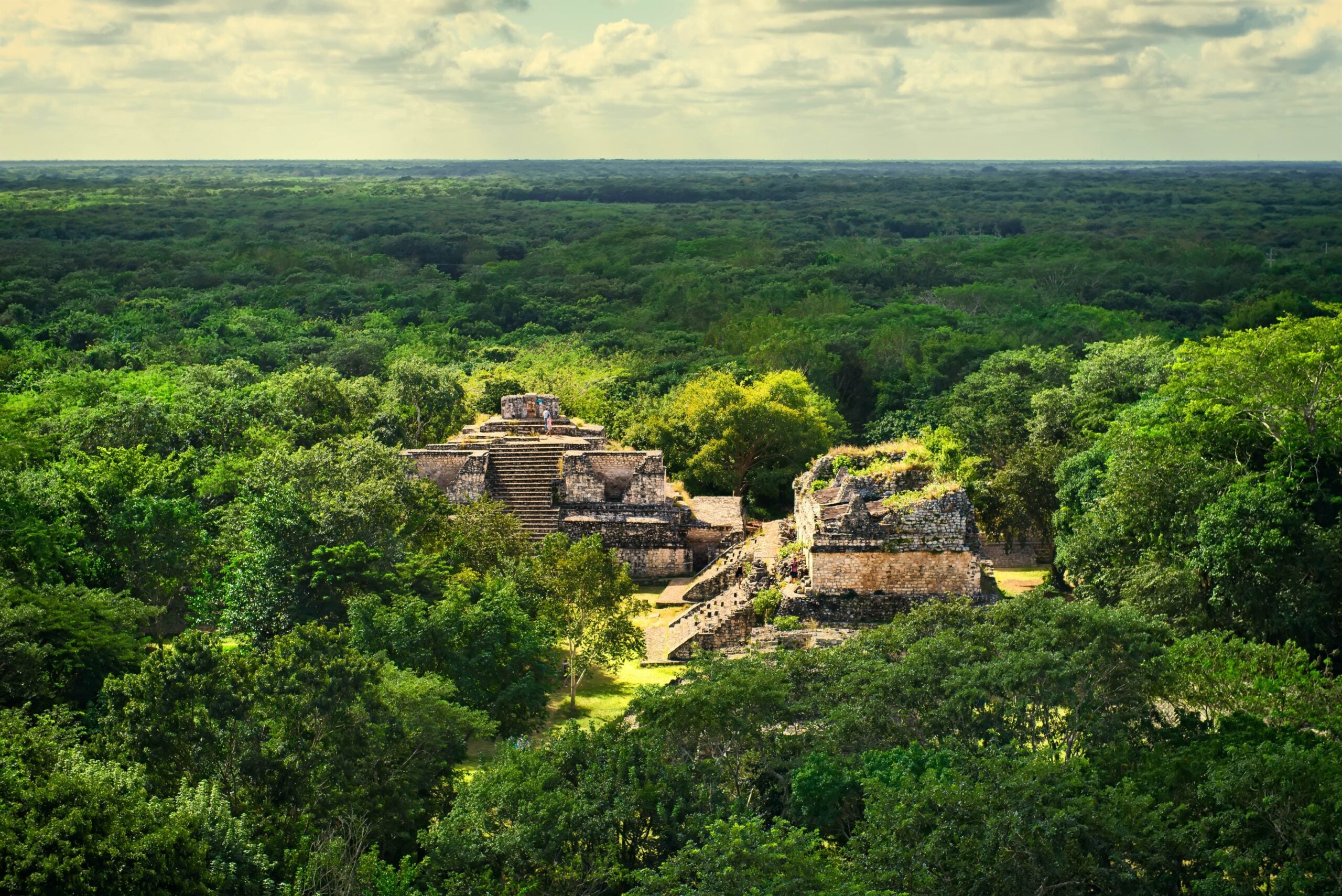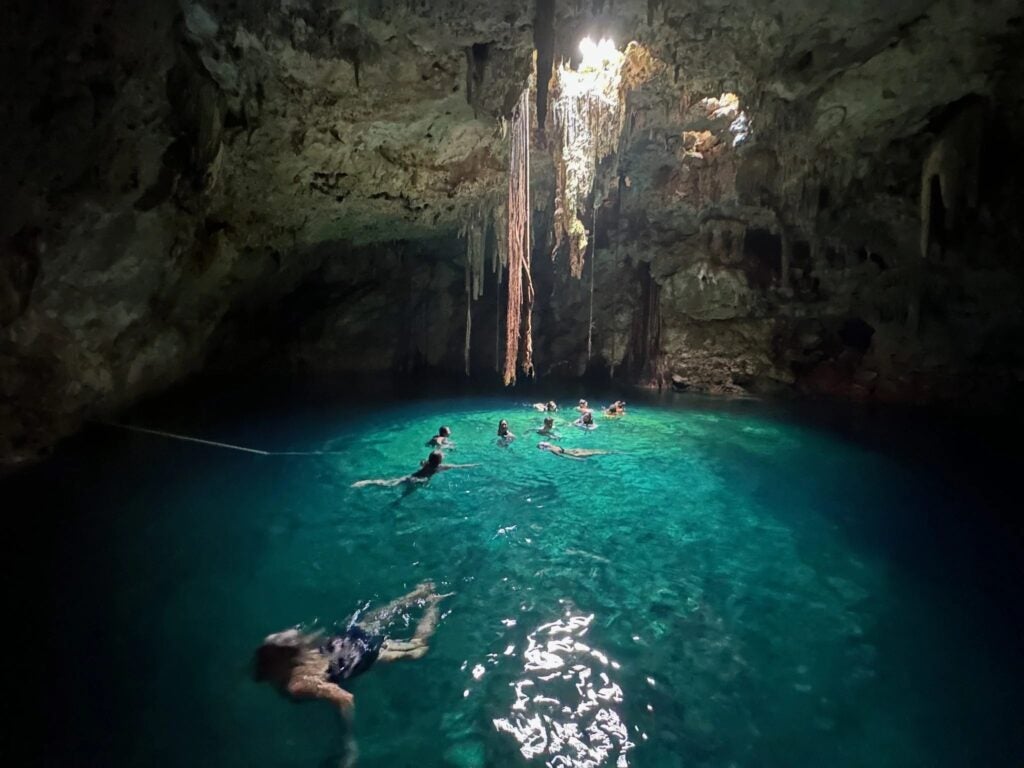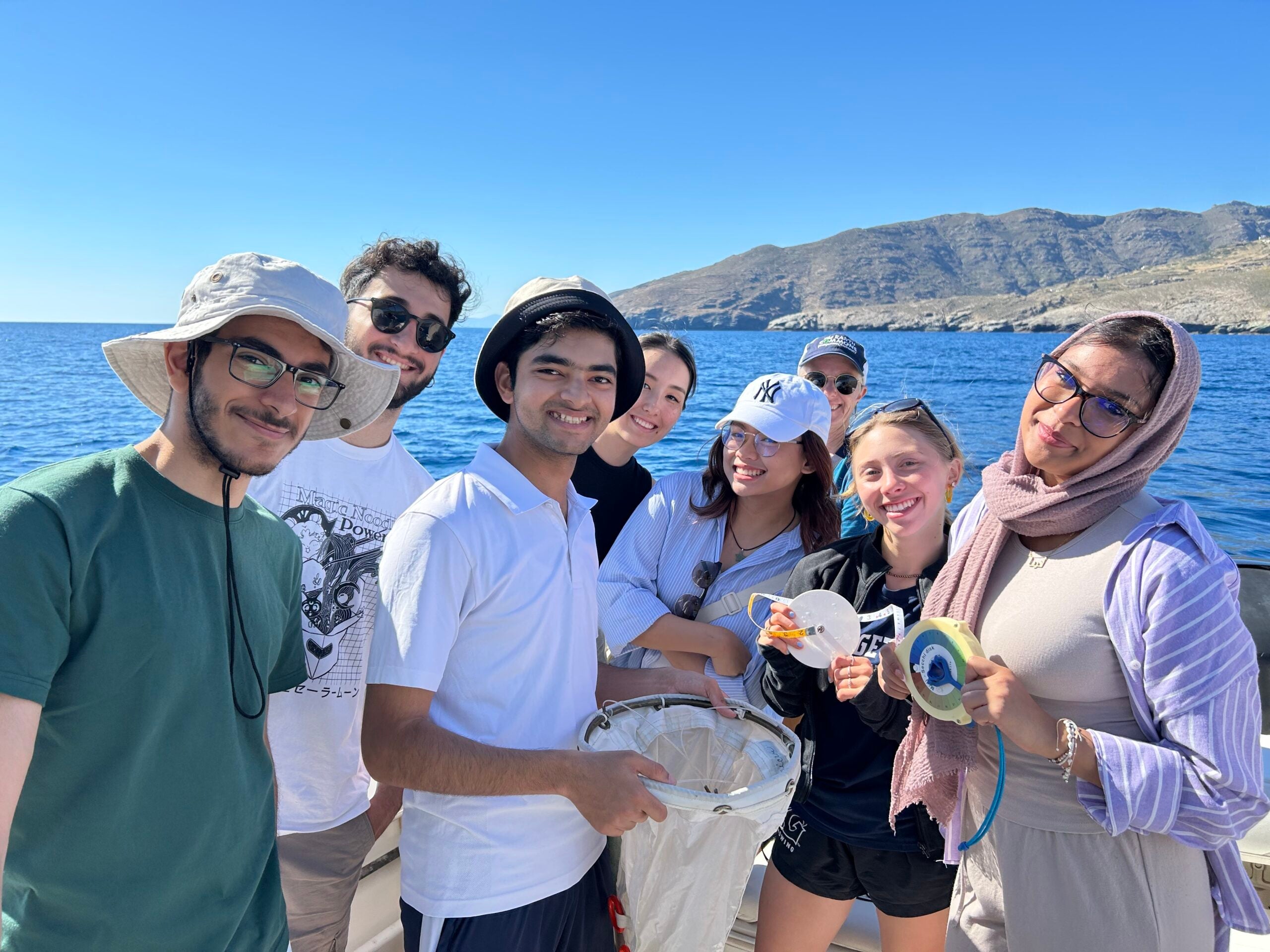
Environment & Sustainability Abroad
Solving global environmental and sustainability challenges requires global perspectives. Georgetown University is pleased to offer learning experiences exploring environment and sustainability in multiple sites around with partnerships including the Office of Global Education and GU-Qatar.
Courses
The following is a list of faculty-led courses abroad.
Adaptation in a Climate Change Hotspot (Athens, Andros, Paros, Syros – Greece)
Course Objectives:
1. Understand the basics of climate change and its connections to water, food, and social/economic development.
2. Communicate environmental issues in Greece, such as climate change and ecological degradation, to both scientific and non-scientific audiences convincingly.
3. Develop policy and economic recommendations based on environmental science and sustainability principles.
Teaching Components:
1. In-Depth Academic Study: Explore foundational concepts in climate and environmental change in Greece through rigorous in-class discussions, lectures, and research projects.
2. Experiential Learning: Immerse in a two week-long on-the-ground experience in Greece, engaging with diverse ecosystems, local communities, and environmental organizations. Apply classroom knowledge to real-world scenarios, fostering a deep understanding of environmental challenges.
3. Independent Study: Undertake an independent group-based research project, guided by the course instructor, focusing on one of five project prompts. The project deliverables will include a GIS-based storymap and presentation of our work (virtually during the Fall semester).
Humans and Nature (Cape Town, South Africa)
The Cape Town: Humans and Nature program is part of a thematic series of OGE programs that focuses on human and environment interactions on a global scale.
Program Description
Are humans part of or separate from nature? Do our current relationships to our natural surroundings affect how we live our lives? How do various perspectives on these fundamental questions affect the way human societies interact with and use nature? In this three-week study abroad program, you will travel to Cape Town, South Africa to explore answers to these questions and use them to understand how humans both shape and are shaped by the ecological systems in which modern societies exist.
Hosted by the University of Cape Town’s International Academic Programmes Office, the program will delve into the principles and practices of nature conservation, the use of natural resources, and the impacts of human activities on local wildlife. Students should be prepared for an immersive experience, involving lots of time in nature as well as visiting animal sanctuaries and nature preserves.
Georgetown Faculty Director(s):
Angela van Doorn (Assistant Teaching Professor, Department of Biology)
Ecology, Culture and Sustainability in the Yucatan (Merida, Mexico) – ERTH 3575
Program Description
In this course, we will examine the conservation of tropical forests, coastal ecosystems and mangroves habitats, the culture of the current and pre-European Mayan communities, and the sustainability of the environment and culture in the Yucatán. The Yucatán Peninsula, located in southern Mexico, separates the Caribbean Sea from the Gulf of Mexico. Encompassing the three states of Campeche, Yucatán, and Quintana Roo, the peninsula’s forest ecosystem is the largest continuous area of tropical vegetation in the Americas after Amazonia, containing 10 million hectares of diverse forests and serving as a vital carbon sink for the planet. The area has been home to the Mayan civilization for the past 8,000 years, and Mayan descendants and culture continue to persist. The Yucatán is an ideal location to introduce students to a broad range of real-world environmental and sustainability issues while gaining a deep understanding about the challenge of balancing short-term human needs with the long-term health of environmental systems.
The class will meet weekly throughout the spring semester. Class meetings will cover content and skills to prepare for the trip and research projects students will undertake while doing field research. We will visit the Yucatán during spring break from February 28- March 8. While on-site in the Yucatán, students will work in small teams to develop and carry out inquiry-based research projects. Students will hear from and work with experts in the field to aid in project development. Upon return from the Yucatán, we will continue to have class meetings where student research teams will meet to complete their research projects and submit their final product by the end of the semester.
Georgetown Faculty Director(s):
Professor Jesse Meiller, the Earth Commons, Georgetown University’s Institute for Environment & Sustainability

Humans and Nature (Cape Town, South Africa)
The Cape Town: Humans and Nature program is part of a thematic series of OGE programs that focuses on human and environment interactions on a global scale.
Program Description
Are humans part of or separate from nature? Do our current relationships to our natural surroundings affect how we live our lives? How do various perspectives on these fundamental questions affect the way human societies interact with and use nature? In this three-week study abroad program, you will travel to Cape Town, South Africa to explore answers to these questions and use them to understand how humans both shape and are shaped by the ecological systems in which modern societies exist.
Hosted by the University of Cape Town’s International Academic Programmes Office, the program will delve into the principles and practices of nature conservation, the use of natural resources, and the impacts of human activities on local wildlife. Students should be prepared for an immersive experience, involving lots of time in nature as well as visiting animal sanctuaries and nature preserves.
Georgetown Faculty Director(s):
Angela van Doorn (Assistant Teaching Professor, Department of Biology)
Politics of Marine Conservation on the Great Barrier Reef (Queensland, Australia)
The Great Barrier Reef: Politics of Marine Conservation program is part of a thematic series of OGE programs that focuses on human and environment interactions on a global scale.
Program Description
Designated a UNESCO World Heritage Site for its extraordinary beauty and biodiversity, the Great Barrier Reef is a global environmental icon and home to one of the most diverse ecosystems on the planet. Despite its protected status, the Reef has become a symbol of the challenges facing humanity in balancing economic imperatives with environmental protection.
Enter the complex world of environmental politics and policy, where marine science and conservation efforts meet economic and political institutions to drive policy outcomes. This program will take you to Queensland, Australia, where the coastal city of Townsville will serve as your gateway to understanding the array of competing interests that affect the Great Barrier Reef. Here you will meet with local politicians, bureaucrats, activists, marine scientists, Indiginous peoples and “ordinary Australians” to understand varying perspectives on issues surrounding the protection and preservation of the Great Barrier Reef.
Through an integration of lecture, discussion, field research, and experiential activities, the course will use the Great Barrier Reef as a case study to examine the process of evidence-based policymaking, emphasizing the roles of vested interests, party politics, and political institutions.
Georgetown Faculty Director(s):
Alan Tidwell, Director of the Center for Australian, New Zealand and Pacific Studies (CANZPS)
Nature and Culture in Latin America (Quito, Ecuador)
Program Description
Delve into the world of language, literature, and culture in Latin America on Georgetown’s summer program in Quito, Ecuador. Alongside distinguished professors from Georgetown University and Universidad San Francisco de Quito (USFQ), you’ll immerse yourself in the study of Spanish, while exploring the deep connections between the culture(s) of Ecuador and the natural world. The program features a combination of classroom study on the USFQ campus, and extensive field experiences – including to a biodiversity research station in the Ecuadorian Amazon and in the Galapagos Islands – to explore how ecological diversity has shaped culture and society in Ecuador and throughout Latin America.
Georgetown Faculty Director(s):
Alfonso Morales-Front (Associate Professor, Department of Spanish and Portuguese)
Sensing Marine Ecosystem Health & Climate Impact from Space (Athens & Andros, Greece)
Program Description
A joint course between Georgetown’s Earth Commons Institute and the National and Kapodistrian University of Athens
The purpose of the course is to immerse students in the field of oceanography, with an emphasis on the impacts of climate change on global marine ecosystems. Students learn how to analyze satellite-derived data to explore the effects of climate change on primary producers (phytoplankton biomass) and the broader marine food web. This course also integrates a global perspective on environmental systems, focusing on Earth as an interconnected ecosystem.
Course Objectives:
Upon successful completion of the course, students are expected to have the ability to:
Present scientific results in a mock conference setting.
Understand marine ecosystems and oceanography, including the cascading effects of climate change on primary producers like phytoplankton and how these influence higher trophic levels, such as zooplankton, jellyfish, fish larvae, corals, marine mammals, and seabirds.
Evaluate human impacts on marine environments, including ocean warming, pollution, and eutrophication.
Gain proficiency in the use of online databases and tools for oceanographic, atmospheric, and meteorological data analysis, including satellite, ARGO Floats, and modeled datasets, and learn simple data manipulation in online platforms and software like Microsoft Excel.
Analyze climate-related changes in marine ecosystems using time-series analysis, anomaly detection methods, and satellite-derived datasets (chlorophyll-a, sea surface temperature, wind speed, mixed layer depth, rainfall, dust, wet deposition, dry deposition, light intensity, etc.).
Develop skills in scientific writing and data presentation, including the ability to communicate research findings effectively.
Formulate research ideas based on marine data and environmental analysis.
Organize and implement a research project related to oceanography, including data analysis, research synthesis
Write an essay in scientific journal format.
Stories from Studying Abroad
All News
All, ECo Greece, International, University Stories
Snorkeling Through Science and Self: Two Weeks in Greece
Saroosh Zahid is a rising junior at Georgetown University-Qatar, pictured above third from left. As I walk down the most recent lane in memory town, I can’t help but smile at the thought of…
July 14, 2025

All, University Stories
Space Detectives: Students Use Satellite Data to Address Climate Change
June 25, 2025
All, International, University Stories
After a Trip to the Yucatan, Undergraduates Find Their Plans Shaken Up
August 1, 2023
